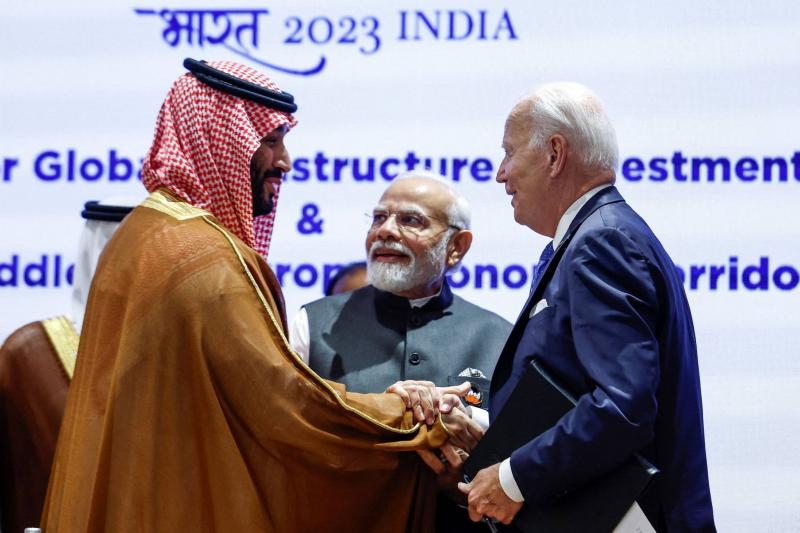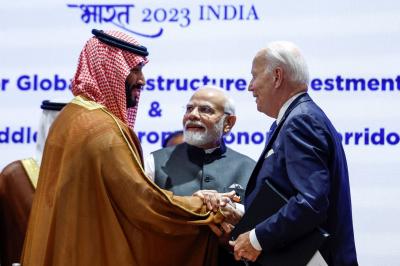Following the announcement by Saudi Crown Prince Mohammed bin Salman about the economic corridor project linking India with the Middle East and Europe during the G20 summit in India, experts and analysts have started discussing its significance and advantages. The project has received substantial support from the United States and the European Union, which will include the development of a new route for shipping and railways. Preparations for the project began in July 2022 when U.S. President Joe Biden spoke about the need for greater regional economic integration without disclosing details. In January, the White House began discussions with regional partners regarding this proposal. By last spring, maps and written assessments of the existing railway infrastructure in the Middle East were being developed. U.S. National Security Advisor Jake Sullivan and senior aides at the White House, including Hochstein and Brett McGurk, took a tour in May to meet officials in Saudi Arabia, the UAE, and India. Since then, all parties have been working to finalize the details of the agreement announced at the G20 summit. According to an Indian newspaper, the project is part of the Partnership for Global Infrastructure and Investment (PGII), and it will consist of a railway and shipping corridor aimed at increasing trade among the involved countries, including energy products.
The economic corridor project includes a railway line, as well as a cable for electricity transmission, a hydrogen pipeline, and a high-speed data cable, according to a document prepared by European Commission President Ursula von der Leyen. The document also described the project as a "green and digital bridge across continents and civilizations."
The project aims to enable more trade among the involved countries, including energy products. The corridor consists of an eastern corridor linking India to the Arabian Gulf and a northern corridor connecting the Arabian Gulf to Europe. It will connect the three regions through advanced communication infrastructure, enhancing economic relations and facilitating the access of goods, energy, and data to individuals and businesses. Through the project, rail lines and port communications from India, Saudi Arabia, the Arabian Gulf, and Europe will be integrated, leading to smoother goods transportation.
The energy sector will also benefit from the project, as it facilitates the export of green hydrogen to Europe and enhances the economic zones in Saudi Arabia that were announced several months ago. The most important aspect of the project is economic diversification, and between Saudi Arabia and India, there is a strategic partnership council, with a significant part of the route passing through Saudi territory, which will reflect on supply chain, transportation, and logistics sectors.




